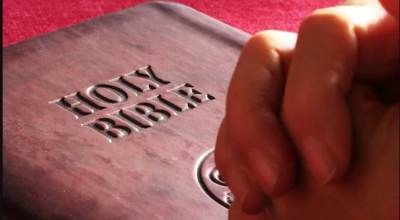Debate will show contrasts for Reeves and Hood
Published 8:01 pm Monday, October 7, 2019
The major-party nominees for Mississippi governor will spell out their differences on education, the economy and other issues in their first — and possibly only — debate before the Nov. 5 general election.
The faceoff between Democratic Attorney General Jim Hood and Republican Lt. Gov. Tate Reeves takes place in front of an audience starting at 7 p.m. Thursday at the University of Southern Mississippi in Hattiesburg. It is hosted by WJTV-TV and will be televised around the state and carried live on two statewide radio services, Mississippi Public Broadcasting and SuperTalk Mississippi.
Here’s a quick look at what the nominees have already said about issues:
EDUCATION
Hood says he wants to expand the state-funded preschool program, provide a substantial increase in teacher salaries and pay the full tab for a school funding formula that was put into law in 1997 and has been fully funded only two years.
Reeves praises students and teachers for advances on standardized test scores in recent years. He says teachers have received pay raises during the two terms he has been lieutenant governor and says he wants to consider more raises in the future. Reeves supports continuing to use public money for scholarship accounts for special-needs students to attend private schools.
Both candidates say Mississippi needs to focus on career training at community colleges to help people learn skills that could help them earn good paychecks in industrial jobs.
MEDICAID
Under the health care overhaul that then-President Barack Obama signed into law in 2010, states have the option of expanding Medicaid to the working poor. Mississippi is among the 14 states that have expanded the health insurance program that’s paid by federal and state dollars.
Hood supports Medicaid expansion. Reeves opposes it.
TAXES
Hood says he wants to reduce Mississippi’ 7% sales tax on groceries, at least cutting it in half and possibly eliminating it. Because cities rely on sales tax revenue, Hood proposes offsetting the loss of grocery tax money by sending cities and counties the revenue from sales tax from online purchases. Hood was among the state attorneys general who pushed to remove the restriction that said a state could only make a company collect online sales tax if it had a physical presence there. When the U.S. Supreme Court in 2018 handed down a ruling that erased that restriction, Hood said: “Today’s ruling is a victory for our Main Street merchants in Mississippi. It puts them on a level playing field with large, out-of-state and international corporations.”
Reeves points to multiple tax cuts the Legislature has enacted since he has been lieutenant governor. In 2016 , Republican Gov. Phil Bryant signed the “Taxpayer Pay Raise Act,” which phases out the personal income tax on the first $5,000 of income and phases out the franchise tax for businesses. “A flatter, fairer tax policy can grow the economy of our state and make Mississippi-grown businesses more competitive in the global marketplace,” Reeves said after the bill signing.
HIGHWAYS AND BRIDGES
Hood has said corporate tax cuts approved by the Republican-led Legislature are draining money from Mississippi’s budget and hurting the state’s ability to repair crumbling highways and bridges.
Reeves says transportation funding will get a boost because of actions lawmakers took during a 2018 special session, including creating a lottery that is on track to start selling tickets late this year.
In addition to Reeves and Hood, the ballot for governor includes two candidates who are running low-budget campaigns: the Constitution Party’s Bob Hickingbottom and independent David Singletary.
Emily Wagster Pettus has covered Mississippi government and politics since 1994. Follow her on Twitter: http://twitter.com/EWagsterPettus.





